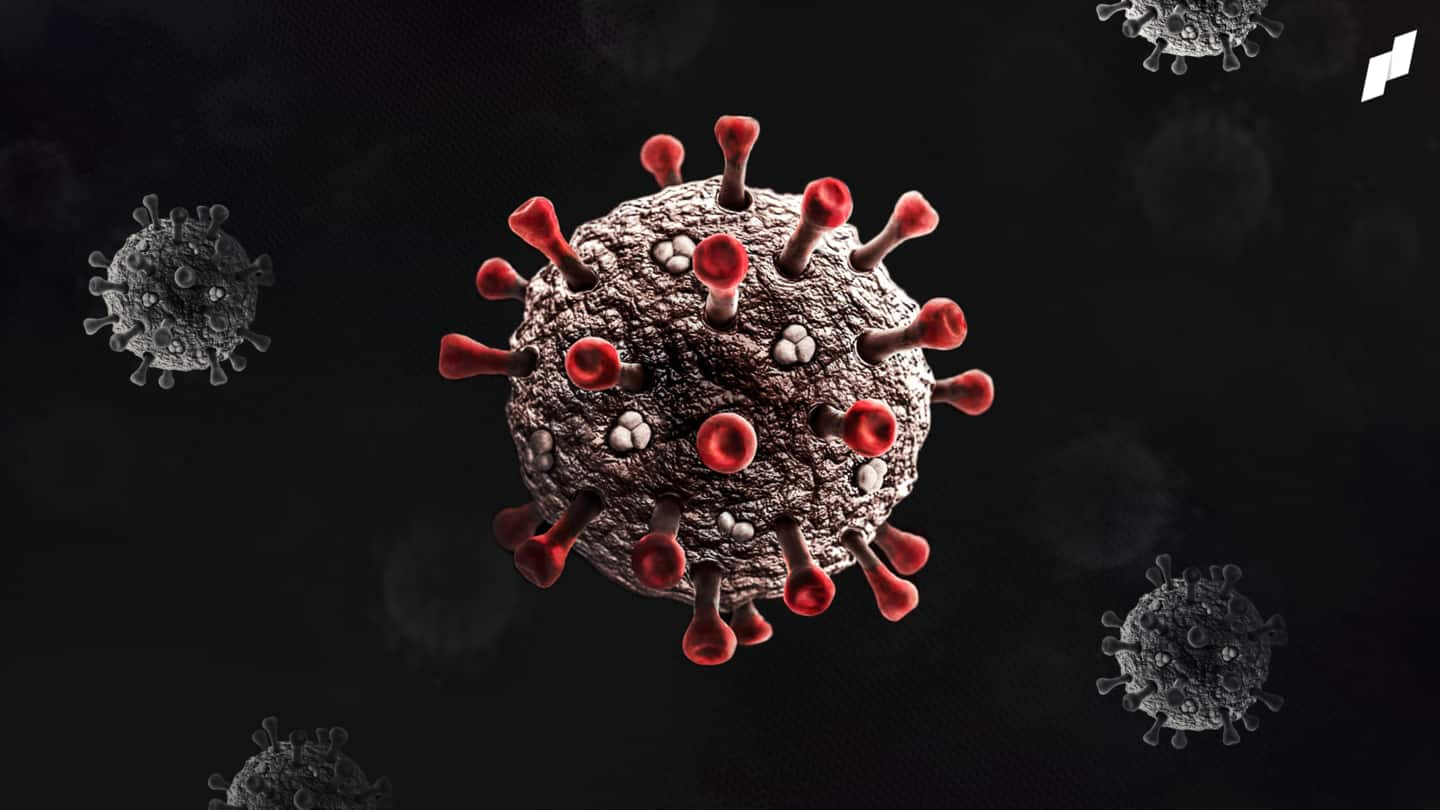
Delta Plus: How dangerous is the new variant of coronavirus?
What's the story
The highly-contagious Delta variant of the novel coronavirus drove India's dreadful second wave of the pandemic.
Now worryingly, that variant has further mutated, giving birth to the AY.1 or Delta Plus variant.
So, is this new strain more contagious? Does it lead to an even severe disease of COVID-19? Let's find out answers to these questions.
Details
How and where was this variant formed?
The new variant is characterized by the acquisition of the K417N mutation, a top Delhi-based clinician said.
The mutation is in the spike protein of the coronavirus, which helps the virus enter and infect human cells, Dr. Vinod Scaria, the clinician added.
The earliest sequence of this variant was identified in Europe in March this year. It is also prevalent in Asia and America.
Cases
How many cases are there?
According to Public Health England, 63 genomes of the Delta Plus variant have been identified by the global science initiative GISAID.
The new variant was present in six samples from India as of June 7, the health agency said.
There are 36 cases in the UK and it makes up 6% of all the cases in the US.
Details
How does it respond to medication?
Emerging evidence suggests the Delta Plus variant is resistant to the monoclonal antibody treatment, which was recently authorized in India for COVID-19 treatment.
"One important point to consider regarding K417N is evidence suggesting resistance to monoclonal antibodies Casirivimab and Imdevimab," said Dr. Scaria.
However, resistance to the therapy is not an indicator of higher virulence or severity of the variant, experts say.
Transmissibility
What do we know about the transmissibility of the variant?
The quality and quantity of the antibodies, generated in an individual infected with a certain variant are unlikely to be affected because of a mutation, said Dr. Vineeta Bal, guest faculty at the Indian Institute of Science Education and Research, Pune.
"Thus, in individuals catching infection with the new variant, it may not be a matter worth worrying," she said.
Concern
Do you need to worry?
Anurag Agarwal, the director at CSIR-IGIB, said the variant is not a cause of concern in India for now.
He, however, informed that blood plasma from fully vaccinated people will have to be tested to confirm whether it can escape the body's immune response.
"Understanding this continued evolution is of great importance in mapping the evolutionary landscape of emerging variants," Agarwal told PTI.
Twitter Post
Sequences identified from 10 countries
A small number of sequences of Delta (B.1.617.2) having spike mutation K417N can be found on GISAID. As of today, these sequences have been identified in genomes from 10 countries
— Bani Jolly (@bani_jolly) June 14, 2021
Here's a dedicated Nextstrain build for Delta+K417N sequences. https://t.co/hc5VBoHasT
1/9 pic.twitter.com/6G4Qb0XcNV
Situation
India's coronavirus situation
India faced the world's worst coronavirus outbreak earlier this year, but the situation has since improved.
In the past 24 hours, the country reported nearly 60,000 new infections - the lowest one-day surge since late March.
2,726 deaths were also recorded during the same period.
India has administered over 25 crore COVID-19 vaccine doses, but only 3.4% of the total population is fully vaccinated.